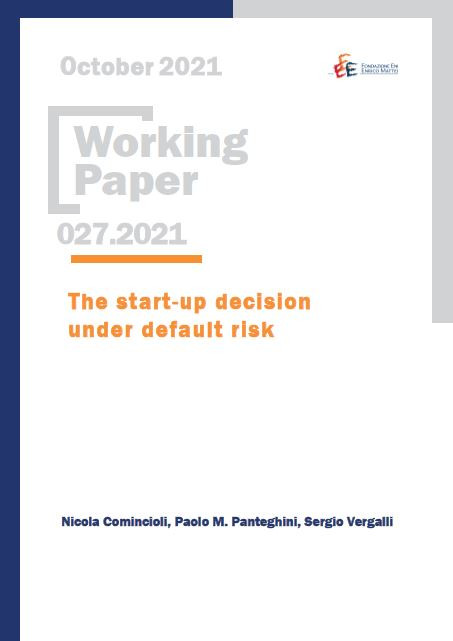The start-up decision under default risk

20.10.2021
Nicola Comincioli (Fondazione Eni Enrico Mattei, University of Brescia); Paolo M. Panteghini (University of Brescia, CESifo); Sergio Vergalli (Fondazione Eni Enrico Mattei, University of Brescia)
H25, G33, G38
Real Options, Business Taxation, Default Risk
This study introduces a real option model to investigate how fiscal policy affects a representative firm’s investment decision and to measure its welfare effects. On the one hand, the effects of financial instability on the optimal investment timing and on the probability of default are studied. On the other hand, it is shown how the net present value of an investment project, the tax revenue generated and the welfare are influenced by financial instability. Then, a comparison of welfare effects of tax policy on start-ups, mature and obliged firms is provided. This comparison provides policy-makers a tool to shape their tax systems according to the characteristics of their firms. All presented analyses are supported by numerical simulations, based on realistic data.
***
Suggested citation: N. Comincioli, P. P. Panteghini, S. Vergalli, ‘The start-up decision under default risk’, Nota di Lavoro 27.2021, Milano, Italy: Fondazione Eni Enrico Mattei
